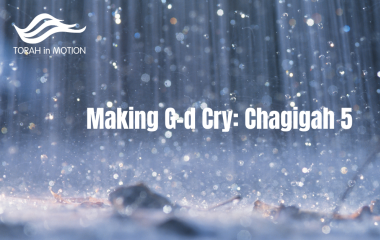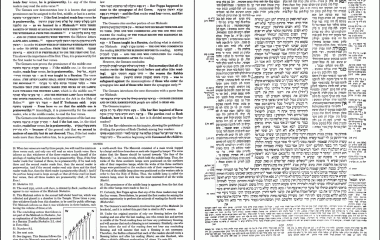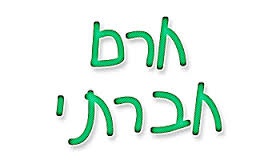"The gates of repentance are always open". Yom Kippur is predicated on the possibility of teshuva at all times for all people[1…

Chagigah 14: Acher, Please Return
One of the hallmarks of the Western world is its inclusiveness. Great attempts are made to make all feel included, no matter their ability or their…

Chagigah 10: Where Is the Text?
A question I have often been asked by non-observant Jews runs as follows: Since cars were not yet invented when the Torah was given, how can one…

Chagigah 9: FOMO--Don't Miss Out
With the beginning of selichot season (at least for Ashkenazim), we turn our thoughts to the notion of teshuva. This most difficult…

Heaven or Earth : Chagigah 6
Heaven or Earth: Chagigah 6 "Three mitzvoth were the Jewish people commanded when they went up [to Jerusalem] on the festival, …

Making G-d Cry: Chagigah 5
Making G-d Cry: Chagigah 5 In our last post we discussed the reasons that a number of our Sages cried. But humans are not the…

Chagigah 5: The Gates of Tears
“Even though the gates of prayer are closed, the gates of tears are never closed”. With the destruction of the Temple--“the house…

Chagigah 3: There Is Always Something New
Perhaps the most beautiful aspect of the Yamim Tovim, especially in Temple times, was the coming together of Jews from all walks of life to celebrate…

Some Opening Thoughts on Masechet Chagigah
The mitzvah of aliyah laregel--going up to Jerusalem on Pesach, Shavuot, and Sukkot--was a central feature of these holidays of national…

Some Concluding Thoughts on Masechet Moed Katan
The commitment to learn Daf Yomi is a remarkable one. It is the only study project I know that takes seven and half years to complete (2,711 days, to…

Moed Katan 28: Beyond Our Control
It is to be expected that, in a chapter dealing with the laws of mourning, a discussion of the philosophical implications of death will follow. Such…

Moed Katan 27: Leading By Example
No idea is stressed more in the Torah than that of being kind to strangers, “because we were strangers in the land of Egypt”. This notion…

Moed Katan 21: A Living Torah
As previously discussed, both mourning and Chol Hamoed share a prohibition of shaving. Yet the reasons for such are very different; the…

An Outsider: Moed Katan 17
One of the greatest and the most tragic figure of Talmudic literature is Rav Eliezer ben Hurcanus, known simply as Rabbi Eliezer Hagadol, Rabbi…

Moed Katan 17: How to Sin
The primary way we can tell which commandments are more important than others is by the punishment recorded in the Torah for various offences[1].…

Moed Katan 9: To Fast or Not To Fast
The Gemara (Megillah 5b) relates that Rebbe wanted to abolish Tisha B'Av. Interestingly, no reason is given for this idea of Rebbe's[1]. And…

Moed Katan 8: Mazel Tov--Soon
As we discussed in our last post, mourning and Yom Tov[1] are polar opposites, and mourning has no place on these days of joy. Such is…

Moed Katan 8: Mixed Emotions
Halacha reflects not only legal truths, but moral, psychological, and philosophical (and other) truths, as well. The wide observance of the laws…

